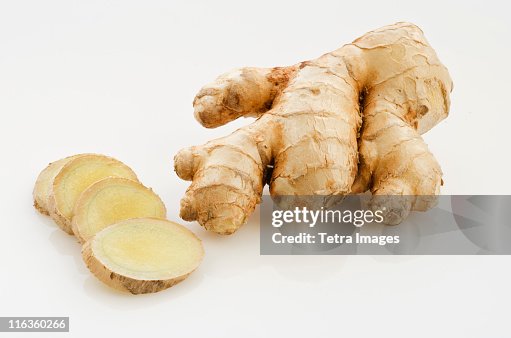
Nigeria is known for its abundant natural resources and diverse agricultural production, and among its many valuable crops, ginger stands out as one of the most promising. The country boasts an enviable quality of ginger that is often regarded as among the best in the world. The unique climatic conditions, fertile soils, and traditional farming practices contribute to producing ginger that is rich in flavor, aroma, and medicinal properties.
However, despite this potential, Nigerian ginger farmers have faced significant challenges, most notably due to the ginger blight outbreak.
The outbreak has forced buyers to turn to other sources, like China, India, and Peru, for lower priced ginger and which has also led to a devastating 74% drop in Nigeria ginger exports, according to ingredients network
Fungal infections and high production costs have left Nigeria\'s ginger industry on the brink of collapse, affecting the global supply chain.

Nigeria farmers reported losses of up to 90%. Despite the government allocating $1 million in support, but farmers argue that this is not enough to prevent further decline.
Beyond disease, rising production costs have made Nigerian ginger uncompetitive in global markets.
While the global cost of production ranges between $2000 and $3000 per metric ton, Nigeria farmers are facing costs exceeding $10,000.
Seed prices have surged , reaching over #300000 ($200) per bag, with a single hectare requiring up to 30 bags. These rising costs have pushed many farmers out of production, accelerating the country\'s loss of market share.
The loss of market share has forced some Nigerian farmers to abandon growing ginger in favor of turmeric.
Rising temperatures have triggered extreme flooding in Nigeria, costing human lives and spreading illnesses. This same extreme weather has been linked to the fungal outbreak.
Flash floods, drought, and heat waves are plant stressors that increase the risk of fungal infestations. Extreme flooding and rising water temperatures provide further aid to plant pathogens. In Nigeria, 51% of farming areas are at risk of flooding.
We are witnessing the clear and present existential threats of climate change and it\'s impact on our local food systems. Climate change is real said Aliyu Abdullahi, Nigerian Minister of State for Agriculture and Food Security, per BusinessDay.
Extreme weather is a threat to global food security. When crops fail, food prices rise, and governments foot the bill for millions in losses. It\'s not just ginger, fungal disease threatens wheat production.
What is being done about Nigerian ginger blight?
Nigerian farmers are adapting to ward off diseases. Expert are looking to adopt sustainable farming practices and adjust planting timing.
The Nigerian government established a task force to contain the spread. This includes research into disease resistant ginger varieties and services to educate farmers on disease management best practices.
Leave a Reply